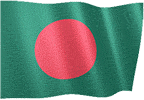MOU Signed with CSSTEAP
In response to the UN General Assembly Resolution (45/72 of 11th December, 1990) endorsing the recommendation of UNISPACE-82, the United Nations, Office for Outer Space Affairs prepared a project document (A/AC. 105/534) envisaging the establishment of the centre for Space Science & Technology Education in the developing countries. The objective of the centre is to enhance the capabilities of the member states in different areas of space science and technology that can advance their social and economic development. The first of these Centers, named as Centre for Space Science & Technology Education in Asia and the Pacific (CSSTEAP) was established in India for Asia pacific region on November 1, 1995 under an agreement concluded initially by 10 countries of the region. These are Indonesia, India, Kazakhstan, Kyrghystan, Mongolia, Nauru, Nepal, Republic of Korea, Sri Lanka and Uzbekistan. Subsequently, Democratic People's Republic of Korea and Malaysia have signed the agreement in 1997. In 1998, the Philippines and Myanmar signed the agreement. In 2006 Thailand signed the agreement. At present there are 16 signatory countries (DPR Korea, India, Indonesia, Iran, Kazakhstan, Kyrgyzstan, Malaysia, Mongolia, Myanmar, Nauru, Nepal, Philippines, Republic of Korea, Sri Lanka, Thailand, Uzbekistan) and representative of United Nations (UN-OOSA) and International Institute of Geo-information Science & Earth Observation (ITC) in Enschede, The Netherlands are observers.
Cooperation agreement with United Nations
The cooperation agreement with the United Nations was signed on 7 May, 1996. On behalf of the centre, Dr. K Kasturirangan, Chairman, GB signed the agreement and on behalf of the United Nations, Dr. N Jasentuliyana, Deputy to the Director General, United Nations Office at Vienna and Director, Office for Outer Space Affairs signed the agreement.
Host country Agreement
The host country agreement was approved by Govt. of India in March 1998 and notified in the Gazette of India (Part-II section-3subset No. 184, 23 March 2000, Ministry of External Affairs): according to the Centre, its representatives and officers privileges and immunities of certain provision set out in the schedule to the United Nations (Privileges & Immunities) Act, 1947. Under the host country agreement, the centre has access to the facilities/infrastructure and expertise of the Indian Institute of Remote Sensing (IIRS), Dehradun, Space Applications Centre (SAC), Ahmedabad and Physical Research Laboratory (PRL), Ahmedabad.
Scientific Cooperation
- The center has signed MoU with International Institute for Geo-Information Science & Earth observation (ITC),The Netherlands in 2008 for exemption for PG Diploma holders of CSSTEAP RS & GIS students. All the diploma holders of CSSTEAP RS & GIS PG Course can get exemption for 2 or more modules at ITC PG, Master Degree Courses.
- The centre has signed MoU with International Centre for Science & high technology (UNIDO) Trieste, Italy in December 1998 for point project to problems of interest to the countries and for project work of some of the CSSTEAP students.
- It has MoU with The Aerospace Remote Sensing Development Group (GDTA), France signed in November 1998 towards award of few fellowships for students, faculty exchange and help to CSSTEAP students.
- MoU with TWAS-UNESCO Associate scheme, Trieste, Italy was signed in July 1999
- CSSTEAP has MoU with Andhra University, Visakhapatnam, India signed in 1998 for considering the CSSTEAP 9 months PG diploma along with one year research work in their home country as for award of Master of Technology (M.Tech) degree.
CSSETAP has linkages with UN Agencies including UNOOSA, UNESCAP, UNESCO, UNDP, WMO –towards few fellowships / travel support/ sponsor short courses. There are also linkages with other Universities / Institutes (Institute of Space and Astronautical Science (ISAS), Japan; EUMETSAT, U.K; Onera, France; University of Colorado, University of Reading, U.K; NOAA-USA, University of Wisconsin, USA; University College of London, U.K; University of Hannover, Germany, etc.) for Guest Faculty and scientific exchange programmes In India, apart from DOS/ISRO Centres CSSTEAP has linkages with many universities and academic institutions for imparting education/training.
Fellowship Provision & Support
Funding for travel grants, tuition fees and scholarships of students and the management of the centre is mainly provided by Department of Space on behalf of Host country. Other agencies financially supporting CSSTEAP activities include the Ministries of Finance and External Affairs of India, UN-OOSA, the UN Economic and Social Commission for Asia and the Pacific (ESCAP) in Bangkok, Thailand, UNESCO.



















